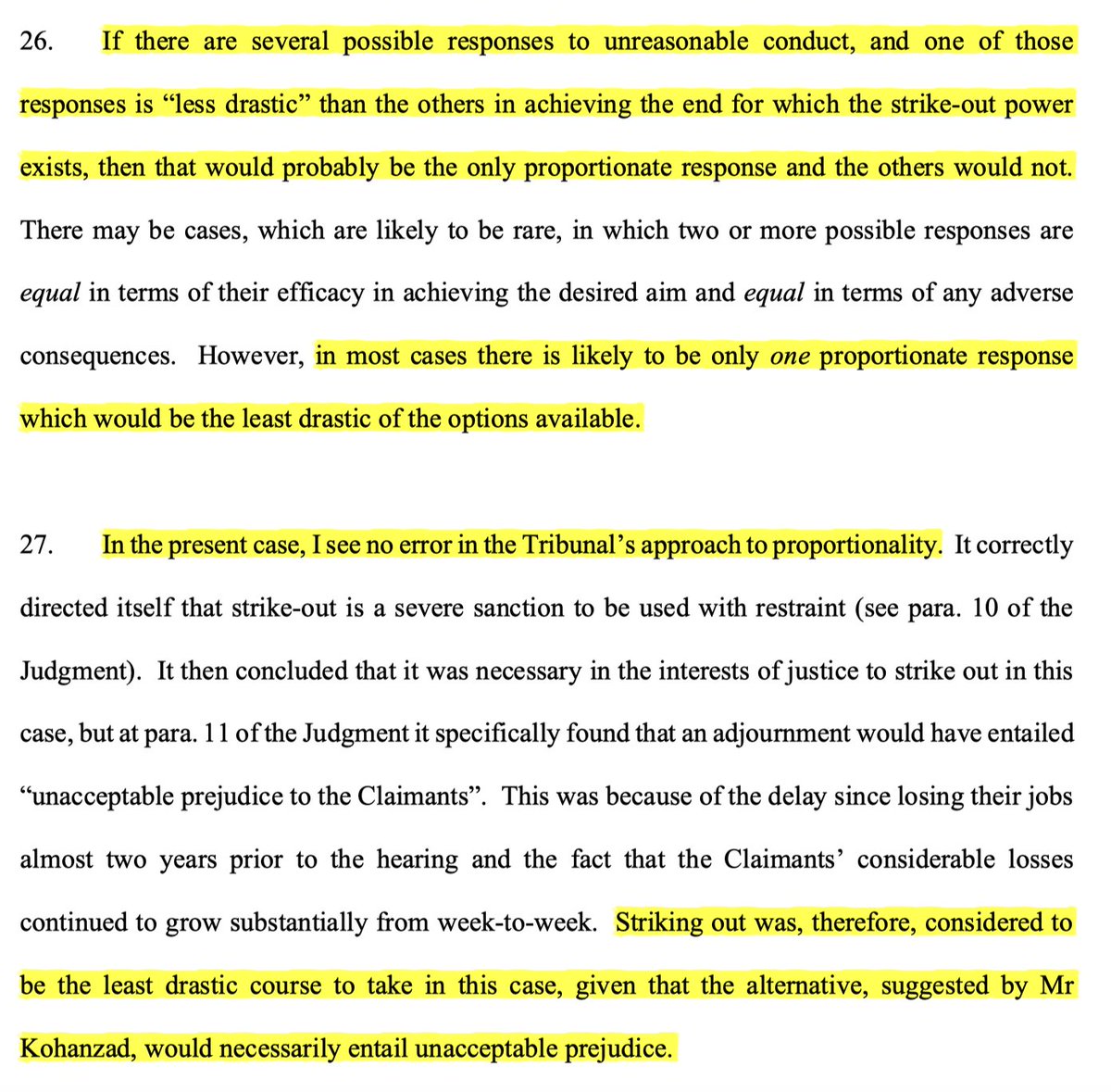
1/ Emuemukoro v Croma Vigilant (Scotland) Ltd: A claim/response can be struck out at the start of trial if the party's actions mean no fair trial is possible within the trial window even if it could have been possible at a later date.
assets.publishing.service.gov.uk/media/6194fd7e…
#ukemplaw
assets.publishing.service.gov.uk/media/6194fd7e…
#ukemplaw
2/ In this case, the matter got to day 1 of a 5 day trial without CV having prepared witness statements & with it preparing a bundle excluding most of the relevant documents. CV had ignored lots of ET orders & hadn't engaged with E in preparing for the hearing.
3/ On the morning of the 1st day, the EJ struck out the response, finding that a fair trial wasn't possible within the time & that the only reasonable course was strike out rather than an adjournment of many months. Blockbuster v James was relied upon. 





4/ On appeal, that decision was upheld by the EAT. CV argued that strike out should only be used if a fair trial isn't possible at any point, but the ET disagreed. Considerations about fairness to an unemployed claimant, use of court resources, passage of time were relevant. 



5/ If CV was right those matters would've to be disregarded as irrelevant if a fair trial could happen at another time. The EAT found however against CV's proposed limit on the strike out power. Strike out could take account that a fair trial wasn't possible in the window. 



6/ In obiter the EAT also considered the alternative Blockbuster justification for strike out - deliberate & persistent disregard of required procedural steps. The EAT accepted 'deliberate' probably excluded mere oversight or negligence. 

7/ Finally, on proportionality the EAT accepted that the proportionate action would be the least drastic one, but here it was less drastic to strike out CV's case & to get on with reaching a decision than to adjourn for many months with all the prejudice to E that would bring. 

8/ A good effort by @42BR_Employment roommate @RadBarrister but this one was always going to be an uphill battle after the failures of the client at the ET stage.
#ukemplaw
#ukemplaw
• • •
Missing some Tweet in this thread? You can try to
force a refresh











